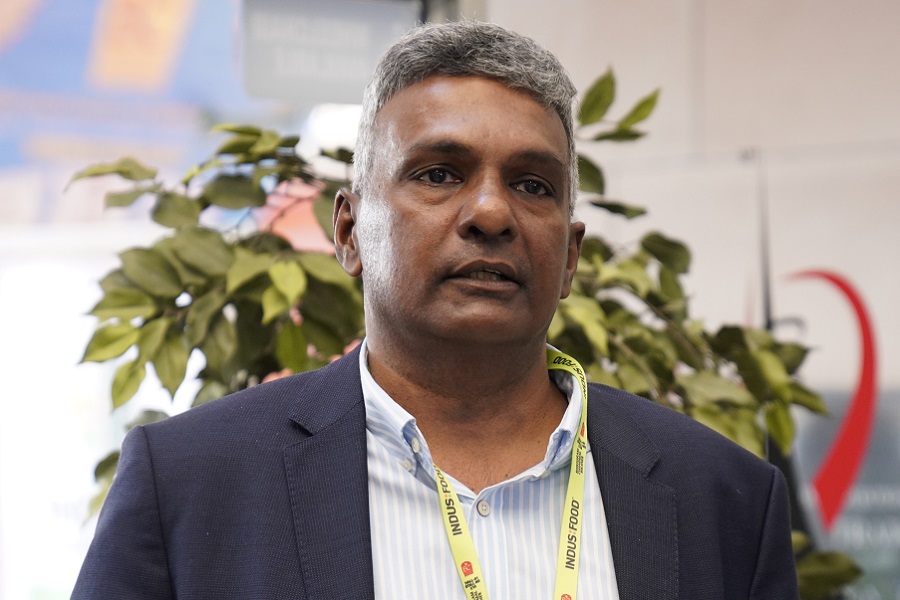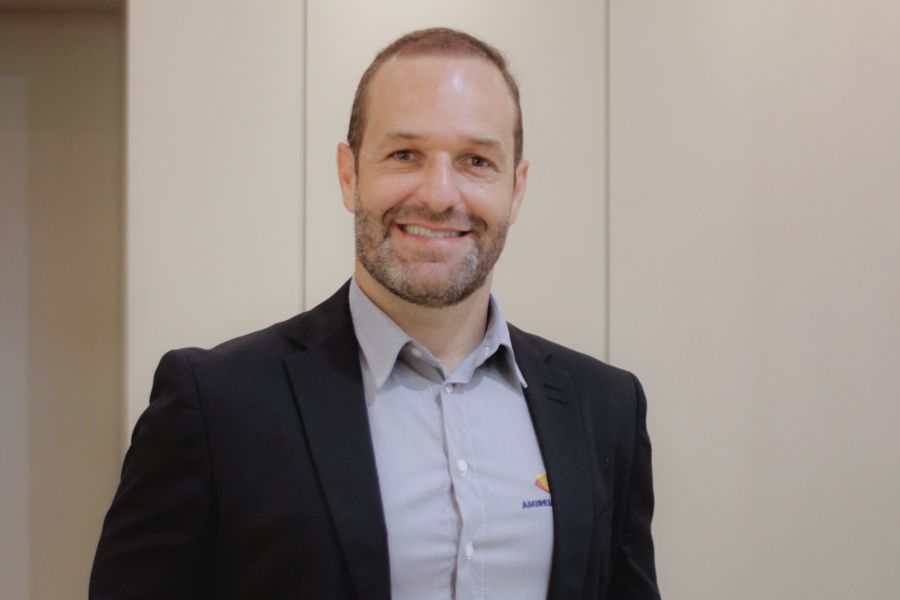India has export opportunity with organic spices
Rajiv Warrier, CEO-GCC at Choithrams, spoke with IBT exclusively on the prospects of Indian organic food creating a niche in the Middle Eastern market, popularity of online retail stores and the quick grocery delivery. The industry pioneer putforth his skepticisim on the rising competition of quick door-step delivery and says that such promises will only make it more cost consuming for FMCG distributors.

Photo Source: Trade Promotion Council of India
IBT: Choithrams came to UAE over four decades ago and has since grown to one of the widely recognized retail chains in the emirates. Tell us a bit about the company’s presence as of today.
Rajiv Warrier: So, Choithrams actually began in this region in 1974. That’s almost 50 years since our first store was set up in Dubai, in Burdubai in Meena Bazaar. And now, we have retail operation in UAE, Bahrain, and Qatar. And we also have a distribution operation in UAE, Bahrain, Qatar and Oman. We have 72 stores in these three countries and we have another 16 or 17 stores that are currently works in progress that will be added in the next six to 12 months. We have two stores opening in Dubai, we have a set of convenience stores opening in the hotel chain in Dubai. We have four large stores opening in Qatar, we have a couple of stores opening in Bahrain in 2023. Choithrams is expanding. In distribution as well we deal with maybe 100 brands over here, regional and international brands in the UAE. We also have a fairly large distributor in Oman. And we also do distribution in Qatar and Bahrain as well. There we distribute largely food FMCG products, largely food FMCG products. We have about 5000 employees across this region in these four countries.
IBT: What is the popularity of Indian products in the middle east?
Rajiv Warrier: As far as products are concerned, the most popular products are the food grains and spices. Products like spice jars, spice packets do very well. Frozen foods, they do okay over here in Dubai. They do better in Qatar. 20 years ago Qatar had only about four or five Indian restaurants, right. There were stores but there were very few restaurants in Qatar. So we launched a frozen range in Qatar and it did really well. And then we launched a frozen range in Dubai as well thinking it will do well. But in Dubai it didn’t. Why because in Dubai the options to eat are tremendous. So you have so many options, so many restaurants everywhere. And you have food delivery everywhere, you have restaurants everywhere, you have different cuisines, you have Indian cuisines, you got different because South Indian cuisine, you’ve got North Indian cuisine, you’ve got Punjabi cuisine, you’ve got Lucknowi cuisine, right? Food options are numerous over here.
IBT: Vegan food variants such mock meats, almond milk, soya milk. What is the demand of vegan food in Dubai?
Rajiv Warrier: So vegan food is still a growing trend. It’s a slow growing trend because meat consumption in the Middle East is very high. But organic food is growing in a big way. I think in organic spices there’s an opportunity for Indians over years to launch organic spices, organic food grain, organic rice, organic wheat, so there are opportunities over here. Organic will grow in the future. Gluten free is growing to some extent, but not amongst Indians, more amongst Europeans and others. Typically, gluten free also is big, alternative milk is also growing. Alternative milk is bigger amongst Europeans and other expats. But over here, I would say organic is a good opportunity.
IBT: Is there a demand of processed food from India?
Rajiv Warrier: There is a trend of that which is stronger in the HoReCa channel. So, in the HoReCa channel in restaurants and all that a lot of them use these ready to eat curries and ready to eat foods but consumers at large still prefer to buy vegetables, fruits and things.
IBT: India is one of the biggest rice exporters also. What is the demand of non-basmati rice in Dubai?
Rajiv Warrier: So we do (sell) a lot of rice which also consist of non-basmati rice. There are a lot of South Indians and Malayalis in the Middle East, right. So they do matta rice, They prefer parboiled rice, sona masoori rice. So, it’s not just basmati rice. Basmati rice has a market of course, but you have demand for non-basmati rice as well.
IBT: How has the online FMCG sale taken shape in a post-covid era?
Rajiv Warrier: We have our own e-commerce site, we also partner with other marketplaces where our Choithrams is available on their sites, as well. That’s basically retail. But we also do distribution. If you look at our history of Choithrams, we started we were only dealing in brick and mortar. In 2016, we introduced our website. Then, recently, six months ago, we tied up with Deliveroo. So with Deliveroo, we are the exclusive supplier for their dark stores. They supply in 20 minutes or 30 minutes to their consumers and we supply to them. Online is a significant channel for us. Pre-pandemic, it was maybe 3%. And now after the pandemic, it’s gone up to 15%. So it’s very significant, it’s a significant share of our business today.
IBT: What kind of future do you see in online F&B distribution channels?
Rajiv Warrier: Online will continue to grow. I think the challenges in online are different. What we notice between offline and online is that in online, the basket is bigger, the ATV is higher, the Average Transaction Value, therefore, your margin is better, but your costs are also higher because you have to deliver the product to the consumer. So now within India also you have this quick commerce, right, where people are delivering in 15 minutes and half an hour. But that’s a huge cost to delivery. And do consumers actually want to deliver their garam masala and in 20 minutes, I’m not sure. So, those costs are not really tenable to continue the long terms. You’ll have to find the right balance. But I think e-commerce could become maybe 20% in the next couple of years.
IBT: Let’s talk about packaging of the products. Sustainability is a lot in focus. How do you ensure there is sustainable packaging at Choithrams?
Rajiv Warrier: So, we have offered sustainable packaging for quite some time. We partnered with World Wildlife Fund. We share the profits of those go to the World Wildlife Fund as our contribution to the World Wildlife Fund. In Dubai and Abu Dhabi we have begun promoting the use of sustainable packaging a lot more. We don’t offer single use plastics in our stores anymore, we offer only multiple use plastics and non-woven bags. So we charge for all of these so nothing is, of course consumers have sometimes, are not happy to, they’re not initially happy to pay but a lot of consumers are also open to the idea of paying for the environment, for sustainability and all that. Our warehouses in Dubai are powered entirely by solar panels.













Leave a comment